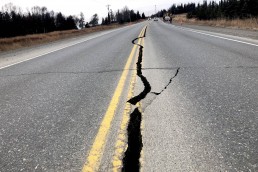Changes to Strata Property Act 2023
Changes to Strata Property Act 2023 - Impact on Insurance
In January, the BC government announced changes to the Strata Property Act to assist in ensuring there are adequate funds available in contingency reserve funds for property upgrades. The hope is to reduce issues with maintenance so there are fewer insurance costs in years to come.

Details on the Amendment
“People living in stratas deserve to have peace of mind that their strata corporation has appropriate reserves to do routine maintenance and keep strata insurance costs down,” said Ravi Kahlon, Minister of Housing. “The overwhelming majority of stratas are doing just that, but a small number of strata corporations that are underfunding their contingency funds and putting owners at risk of surprise fee hikes and higher insurance costs. While the vast majority of strata corporations are already meeting these requirements, we’re ensuring that those outliers are taking steps to protect themselves.”
In 2020, BC introduced changes to the Strata Property Act to help stratas better manage strata insurance costs, including enabling these regulatory changes. Strata corporations in BC are required to have a contingency reserve fund (CRF) to pay for infrequent common expenses, such as maintenance work and emergencies. These new rules will increase the minimum amount that developers and strata corporations are required to contribute to a CRF, from 5% to at least 10% of the annual operating expenses every year. These changes will take effect on November 1st, 2023.
The new minimums were set with the advice of strata managers and homeowner representatives. According to strata industry experts, the vast majority of approximately 34,000 strata corporations in the province exceed this minimum amount and will not be affected by this change.
The Province is also enacting changes to the Form B Information Certificate. A summary of the strata corporation’s insurance coverage must be included in the form, effective April 1, 2023. This will make it easier for prospective buyers and strata owners to know whether the property is adequately insured, and the amount of insurance individual owners need to purchase.
What about new Developments?
Developers are required to include a CRF contribution in a new building’s interim budget, which under these changes will need to be equal to at least 10% of the operating expenses. This will prevent developers from advertising unrealistically low strata fees to prospective buyers and avoid unexpected increases in strata fees in the building’s first years.
For the small number of strata corporations that need to contribute more funds to their CRF to meet the new minimums, this will reduce their risk of strata insurance claims and premium increases, and significant special levies on short notice.
How May this Impact Insurance in BC?
For the most part, this change will have impact to strata owners since most Strata Corporations are already meeting the 10% CRF contribution. That being said, for the Stratas that were underfunding their CRF, this may have an impact on monthly strata fees to boost up the minimum contribution to the CRF. In terms of insurance, the goal of the amendment is actually to reduce the likelihood of the need to use insurance. If proper maintenance is adhered to, the hope is that this will reduce claims linked to poor maintenance of properties. If insurance claims go down, insurance premiums normally are able to remain static without sizeable increases like we have been seeing in recent years. So, overall, the amendment by the province is a positive one for insurance.
At Leaders Insurance, we have a team of skilled brokers who help clients daily with finding the best rates for their home insurance needs. As a result, we have developed longstanding relationships with our clients for home insurance. We take the time to understand your needs and can help you as you find what is right for you. We look forward to assisting you with all of your insurance goals and requirements. Contact Us today.
Floods are Rising in BC
Floods are Rising in BC
The weather in BC over the past few years has been erratic and hard for many people. Wildfires in the summer have required families to flee their homes and floods have devastated homeowners across the province on a number of occasions. Even as recent as January, river levels were rising due to heavy rainfall on Vancouver Island, placing BC’s southwest on alert for flooding. The BC River Forecast Centre issued a flood warning for southern Vancouver Island, central Vancouver Island and eastern Vancouver Island.

Floods Becoming More Regular
The rate of flooding has risen over the past five years in BC and this has created a lot of upset and uncertainty for may people living in the Lower Mainland. The issue is that a flood that moves into a home, can create a lot of damage. No one wants to see water entering their home but living in BC requires being a little bit prepared for this happening.
How Floods Influence Insurance Premiums
In Canada,flooding is the most common and costly natural disaster, causing approximately $1.5 billion in damage to households, property, and infrastructure annually, with residential property owners bearing approximately 75% of uninsured losses each year.
Many homeowners are unprepared for flooding because they lack critical information thanks to murky real estate rules, incomplete floodplain maps and an insurance industry pulling back from high-risk areas, a Marketplace investigation has found.
The IBC estimates that anywhere from six to 10 per cent of Canadian homes are currently uninsurable due to flooding and that estimate could go up as more insurance companies update their risk assessments to account for the rising threat of climate change.
According to a 2019 federal government report, Canada’s climate is warming at double the rate of the rest of the world, and the IBC estimates that currently 1 in 10 Canadian homes is at high risk of flooding and some face possible repeated flooding over the next 20 years.
The recent flooding in British Columbia has made the issue of flood insurance coverage top of mind for many homeowners, as some residents there, unable to find coverage, turn to provincial disaster assistance, and others assess what coverage they have as the cleanup begins.
Insurance unaffordable for many
Insurability is eroding in Canada as the prices are rising so much every year. For the average family in BC, it is unaffordable to buy a home as well as cover insurance and other expenses. The rising cost of insurance is down to the higher amount of claims that are occurring on an annual basis. Climate change has caused this rise in flooding to be a new norm. This in itself is worrying as it means a greater chance for an incident at home but also a rise in premiums is likely something that is here to stay.
When it comes to insurance, you need to take the time to ensure you have all the coverage you need. If floods are worrying you, it is imperative that you checked your current policy and then request a review so you can ensure you are protected but also to receive further guidance on the policy details. You need to work with someone who you can trust and can align the insurance you get with what you truly need in BC right now.
At Leaders Insurance, we have a team of skilled brokers in the home insurance area. If this topic makes you wonder what your policy includes, we welcome your call so we can review your existing policy and ensure you have adequate coverage in the event of a flood. Don’t be left without the coverage you need when you need it most. We take the time to understand your needs and can help you as you find what is right for you. We look forward to assisting you with all of your insurance goals and requirements. Contact Us today.
Strata vs Detached Home Insurance
Is Home Insurance More Costly for Strata Owners in BC?
If you are a resident in BC and own a property, you may know a thing or two about home insurance. Home insurance has been a hot topic over the past couple of years and a lot of the buzz about it has centralized around strata deductibles. This article can help those who currently own a strata property such as a condo or townhouse, those who are looking to purchase a property shortly or individuals who are looking at purchasing a detached home. It may also provide some insight into home insurance for renters – although you may not be paying directly for home insurance or towards your monthly strata fees, if a claim is ever made and you are the occupant of the property, you may want to understand more about how strata insurance plays apart of the overall insurance coverage for the property.

Strata Insurance Policies
Insurance policies are designed to protect the purchaser from unexpected losses. Strata insurance policies are no different; they are designed to protect owners against liability for property damage and bodily injury, and in British Columbia all stratas must obtain and maintain that coverage. While insurance policies have many features, two of the critical ones are the policy premium (how much you pay up front) and the policy deductibles (how much you pay when making a claim, which often varies depending on the nature of the loss).
As many of you know, in recent years, the strata insurance market has seen premiums and deductibles skyrocket, and according to the BCFSA, that’s unlikely to change anytime soon. For strata owners, the hike in premiums impacts you directly through rising maintenance fees, but what about the impact of the change in deductibles?
The higher deductibles will affect you in two ways:
- Your strata will no longer be able to make claims that would have been covered under your previous policy deductibles.
For example, if your strata previously had an insurance policy with a $20,000 deductible and experienced a loss of $70,000 due to a water leak, you used to pay the $20,000 deductible and the insurer would cover the balance. Now, assuming your deductible has risen to $75,000, all $70,000 of the water loss would need to be paid by your strata.
This means that when something does go wrong, you are less likely to be able to rely on your insurance to help.
- You will personally pay more for strata insurance for your condo or townhouse.
On top of the higher premiums you pay via your maintenance fees, your own personal insurance policy costs will rise. This is down to the fact that in addition to covering your personal property and any improvements to your unit – used to be based on covering the strata’s previous deductible if the loss originated in your unit. This means that your insurer’s exposure was your loss plus the strata’s deductible. Now, your strata insurance policy should cover the new strata deductible, which for purposes of example may now be $75,000. With some strata deductibles rising to $250,000 or more, some owners can’t secure enough coverage at any cost. The result of this is that your own policy premiums are going to rise (and it’s likely your personal deductibles will rise too).
The bottom line for owners of strata properties is that until the market conditions change, they’ll be paying more – much more – for both their strata’s insurance and their own.
So how does this compare to home insurance on detached homes?
Overall, home insurance is rising and this is down to the rise in claims for a range of incidents in recent years – especially fires and floods in BC. Additionally, with the surging cost of living insurance costs are also rising. So, insurance will rise even if you are in a detached home.
For a detached home, you are covering the cost of home insurance for the entire property. In a strata arrangement, the strata is buying insurance for the entire strata to cover the cost of repairs to the common “envelope” as well as any liability claims. This is divided between the strata owners and the cost is added to the monthly fees strata owners pay to be part of that strata. As well, each homeowner is responsible to obtain personal home insurance for their property.
Home Insurance and Purchasing a Property in BC
Should the rising cost of strata deductibles and home insurance in BC play a part in the decision of whether to buy a detached or strata property? The answer to this question is likely that it would not. In the times we currently live in, the primary determining driver of the type of property purchased is affordability. Home insurance is an element to consider and can be costly – but it can be an ongoing factor to consider for both detached and strata properties.
When purchasing a property, it is most important to find a property that meets your needs and is a property that you will be able to afford even if costs rise. As we are seeing now with the high inflationary times and the rising cost of living, many people are in a position where they are unable to meet their basic needs. By ensuring you have a comfortable emergency fund in place and room to bear higher expenses including insurance, you will be in a better position to manage a sudden rise in household costs such as home insurance.
At Leaders Insurance, our brokers are here to assist you with finding ways to manage your home insurance and find the best policy and rates for your needs. We take the time to understand your needs and can help you as you navigate the everchanging property market when it comes to home insurance. We look forward to assisting you with all of your insurance goals and requirements. Contact Us today.
All About Earthquake Insurance
All About Earthquake Insurance
Did you know that every year there are roughly 4,000 recorded earthquakes in Canada? Many of us wouldn’t have thought that a country like Canada would be so prone to these natural disasters but experts in British Columbia (BC) warn that in the next 50 years, there is a 30% chance of a significant earthquake in the province. As a result of these global disasters, the Insurance Bureau of Canada (IBC) commissioned an Earthquake study. One of the results of the study estimated that the overall cost, following a 9.0-magnitude earthquake in BC was nearly $75 billion. The full report also quantified the number of damage Canadians could expect if faced with a significant earthquake. It demonstrated that a major earthquake would have a significant economic impact regionally as well as a domino effect on the entire Canadian economy. As a homeowner, do you know if you are protected if an earthquake strikes?

In General
Now knowing these statistics, this may be the perfect time to review your insurance policy to see if it includes earthquake insurance. It is interesting to note that earthquake coverage typically does not form part of most standard home insurance policies. It can however be purchased separately, assuming your property is eligible for the coverage. It will carry with it an additional premium amount and is always subject to a higher (separate) deductible than coverage for other perils included in your policy.
In recent years, we’ve seen the cost of earthquake insurance rise globally and here in BC. This is partly due to the rise in natural disasters, the impact from climate change and the general spike in the cost of living.
Rising costs are something we all need to consider but getting the proper coverage if an earthquake strikes, should be an important decision as a homeowner. It is important to do your research to understand if your property is at risk, based on the location of your property and the infrastructure it is built on.
As we have seen in similar disasters in other parts of the world, earthquakes can leave entire cities paralyzed and many homes destroyed. In the next few sections, we will take a closer look at earthquake coverage, how much it roughly costs to purchase, and whether it is worth purchasing for your home or condo.
What is Earthquake Insurance?
In its simplest description, Earthquake insurance covers the loss or damage caused to a property as well as its contents, because of the shaking of the earth. In most policies, if the shaking of the earth results in a fire, only the resulting loss or damage from the fire would be covered under an ordinary home insurance policy. However, if your home is damaged because of the earth-shaking, not a fire, your standard home insurance policy would not cover the resulting damage unless you have purchased the earthquake coverage add-on.
It is true that earthquakes do not occur as frequently as other natural disasters. While that may be true, earthquakes can cause disastrous damage to homes, possessions, and other buildings. They can happen at any time and can leave people completely stranded, without any of their possessions or even a place to live. Having earthquake insurance provides you with peace of mind knowing that should a major quake hit the Lower Mainland, your home and your belongings are covered.
Cost of Earthquake Insurance
Over the years, the cost of earthquake coverage has increased substantially. Depending on the area of BC that you live in, the additional premium directly attributable to the earthquake can make up as much as 25-35% of your overall premium. Multiply that amount by the number of years you own your home or condo for, and you are paying a significant amount of money for something that may never happen in your lifetime. If the earthquake coverage component costs $300 a year to have and one lives in their home or condo for 40 years, that’s $12,000.
Purchasing any type of insurance requires all of us to look at the costs and benefits. While this cost may seem like a lot – especially at the moment with costs of living rising – if we didn’t have earthquake coverage and an earthquake hit, that could mean a total loss of a home. If we were to experience a disastrous earthquake in our lifetime, that $12,000 spent would be worth every penny and provide you with financial certainty during the most challenging time of your life. And, given that we do live in a part of the world that is prone to earthquakes—and experts telling us we’re overdue for ‘a big one’, it better to be safe than sorry and make an Earthquake Coverage part of your Residential Insurance policy.
Also as part of many earthquake policies, in certain circumstances, homeowners who are unable to return to their homes as a result of insurable damage may be entitled to additional living expenses. Earthquake coverage is also available for your place of business. In the event earthquake damage impedes your business operation, business interruption insurance can also be purchased.
At Leaders Insurance, our brokers are here to assist you with finding ways to manage your home insurance and find the best policy and rates for your needs. This includes investigating the costs and coverage for earthquake insurance. We look forward to continuing to support you in 2023 with all of your insurance goals. Contact Us today.
Let’s make 2020 your best year ever!
Will Strata Deductibles Rise Again in 2023?
Will Strata Deductibles Rise Again in 2023?
For that last couple of years or so now, a hot button topic for many BC residents remains the rise in strata insurance fees.In previous years, condos and townhome owners have especially bared witnessed to their fees steadily increasing, with home insurance costs overall continuing to creep up.
The reality is that there are now over 30,000 strata corporations spread across BC, with nearly 1.5 million residents in the Metro Vancouver area alone.To shed some more light on what 2023 will bring, let’s take a closer look at some of the surrounding issues impacting strata unit owners in BC.

Strata Construction Materials
According to Canadian Underwriter, the type of materials that are used in strata builds have played a major role in the higher costs of insurance premiums.
As such, wood frames versus concrete are typically used in BC construction, and the high price of lumber has driven prices upwards. So much so that, Opta Information Intelligence pointed to a 400% increase in the cost of lumber between 2019 and mid-2021.
Weather-Related Risks
Ranging from fire to water damage, strata deductibles have been on the rise due to harmful weather conditions across the region, which includes significant fire and water damages.
Earthquakes across BC have also let to expensive re-builds, lending themselves to higher premiums.
Building and Repairs
With construction materials more in demand and costing more on the whole, rebuilding and repair costs could still bring higher rates, in terms of the amount of insurance coverage required to offset the costs the BC strata markets will face.
Higher Claims
The reality is that with higher deductibles coming out of condo corporation budgets, premiums have had to also increase. As a result, many strata groups have acknowledged the need to shift towards more prevention methods. To help offset these both present a greater challenges when it comes to increased damage and in turn, higher claims.
Strata Outlook
Thankfully, there are signs that do have market experts pointing towards more stable strata fees in the new year.
With positive steps being taken toward preventative measures, this may also point towards a more favourable home insurance market, including the outlook for strata corps. in 2023.
Some Promising Solutions
In a major attempt to improve strata insurance fees, the Insurance Brokers Association of BC (IBABC) has made some recommendations that they feel will help to clarify any ‘grey’ areas when it comes to differentiating between the ‘insurance duties’ of unit owners and insurance corporation.
For starters, a $50 000 cap on loss assessment has been proposed, since as it stands, unit owners can be left with giant insurance bills that pose a major risk to their financial stability.
This is ultimately, one way that strata corps. feel they can lessen insurance deductibles moving forward.
The IBABC also suggests that all parties would benefit from a more comprehensive ‘standard unit’ definition within the BC Strata Property Act. The goal being that this would ensure units are being kept up to code, in terms of construction criteria, i.e. the walls, subfloor, electrical, plumbing, ceilings, etc.
Again, the idea being that this will help to distinguish between what is the responsibility of the owner and what is the responsibility the corporation when it comes to insurance payments.
IBABC goes on to add that these steps could mean that ‘millions of strata owners’ would be protected from the risk of losing their homes, because they simply can’t afford the rebuild or repair costs.
With these refinements on the horizon, it would seem there is hope for lower strata deductibles in the future – not a rise in high rises!
At Leaders Insurance, our brokers are here to assist you with finding ways to mange you home insurance. We look forward to continuing to support you in 2023 with all of your insurance goals.
We are Living in High Cost Times. What You Can do to Reduce Insurance Costs
We are Living in High Cost Times. What You Can do to Reduce Insurance Costs
Just a Sign of the Times . . .When Harry Styles sings ‘Just stop your crying, it’s a sign of the times’ - sure it might be catchy, but the unwanted sign of the times we’re referring to here is the soaring cost of living across Canada - so actually yes, some crying is to be expected.

While living in Canada certainly comes with its benefits, the reality is, it is still an expensive place to hang your hat.
That’s why finding ways of both sustaining our income, has become a top priority for many BC residents.
It likely also comes as no surprise that two of the main contributors to the high cost of living is homeownership and maintaining and operating our vehicles. From climbing gas prices to high-reaching home heating, cooling and renovation costs, not to mention the many more daily financial challenges – we certainly have been feeling these burdens much more as of late.
Turning our focus back on the bright side for a moment, Canadians are also highly resourceful people. We continue to look for realistic avenues where we can reduce our expenses.
That said, one main way you can do this is by exploring ways to save money on your insurance.
With insurance being pretty much a given, let’s visit some additional ways you can save on your insurance – as well as how your insurance broker can help you along the way.
How to Save on Your InsuranceHome Insurance
With home insurance typically being one of the most expensive areas of coverage you will face, you also have the potential to reduce your costs.
A lot can change in a year, so it is best to evaluate your insurance on a yearly basis to ensure you have the right amount of coverage for your needs.
This is a great opportunity to lower your fees by removing areas of coverage that simply might no longer be needed. In many cases, there is no point in paying more for your policy by over-insuring your home and personal belongings.
By taking an active approach, you can review your policies regularly with the help of your broker. Not only can they go through the finer details of your policy with you, they can also shop around and find the best coverage options for your specific needs.
Vehicle Insurance
When it comes to reducing your car insurance, BC companies don’t compete for insurance, so auto policy rates are typically the same across various brokers. Fortunately, you can still save some money by doing everything you can to avoid accidents and by practicing safe driving as this can lower the amount of claims you are likely to have to make.
If, for example, you are someone who is unlikely to have to make claims very often, one additional step you can take to reduce your insurance costs is to increase the amount of your upfront deductible payment.
It is again a good idea to discuss your options with your insurance broker, as they can recommended a plan that is both realistic and unique to your individual driving situation.
How to Save on Both Home and Vehicle Insurance
While some similar steps can be taken to reduce your insurance across the board, another beneficial method of lowering your car insurance costs, is to look for discounts that you may be eligible for. Some of these include: low-kilo-meter, safe technology, senior savings, and experienced driving discounts.
In terms of both home and car insurance policies, you may also want to consider bundling both of them together – saving you some additional money in the process.
By reviewing your insurance annually for all insurance areas, your broker will help to ensure you have the most suitable insurance coverage that will adequately address many of top financial concerns.
The Bottom Line is…
The most important take away here is that, when it comes to the dark cloud that is the current costs of living – you do have options to save money at a time where it really matters. You just have to know where to look, and in this case, who to ask for help.
Leaders Insurance ‘puts the who’, in who you can turn to for assistance. And when it comes to the current uniqueness of the times we are living in, our insurance brokers can point you in the right direction by finding unique solutions to your individual insurance needs.
The Power of Bundling Home, Car & Business Insurance
The Power of Bundling Home, Car & Business Insurance
When it comes to insurance, there are many different avenues to pursue and sometimes it can be a challenge to know which insurance providers to turn too. Additionally, you will also need to decide whether dealing with more than one or one provider is the best course of action in order to satisfy your various insurance needs.With that being said, there is definitely something to be said for opting to go with one insurance company when it comes to obtaining home, car, and even business insurance. If you are someone who will need to juggle more than one type of insurance coverage, here is some useful information to help you to get a clearer picture of the benefit of bundling your insurance.

Saving Money
First of all, in certain cases bundling insurance can help you save some money. That’s right, if you require multiple insurance types, whether this be for your business, your vehicle, or your home, this can enable you to receive discounts on the overall costs associated with your insurance policies.
A second way that choosing one insurance company can also be more affordable is the fact that your insurance agent can access a variety of deals through different insurance brokers. This can be especially helpful when it comes to finding the right insurance policy for your needs, but also with regards to finding the best rates.
Increased Convenience
Not only can you save money on your insurance, working with one insurance company can also provide added convenience when it comes to managing your policies. Some situations that can be applicable to you can include, making one payment each month, versus individual payments at different times.
Furthermore, if you need to make a claim, and have your insurance with one provider, this can also provide more ease as you only need to contact and deal with one company, and likely one agent as well. Endless paperwork can also seem daunting and working with one insurance company can help you reduce the amount of paperwork, even meaning one sole policy to manage. Instead through bundling, you can have more peace of mind and in turn, spend less time worrying about managing your insurance policy.
The Benefit of Bundling Business Insurance
While you may have already considered bundling your car and home insurance, what about your business insurance?
For example, if you run a small business out of your home, there are also options to bundle your business insurance with your home insurance. By adding extended coverage to your home policies, you can also preserve your business in areas such as, loss of income, liability, and business property coverage.
When all is said and done, bundling your insurance can save you time and money – not to mention minimize the stress associated with managing various insurance policies across a range of insurance coverage areas.
Ultimately, by working with one insurance agent, it can be a very advantageous experience – and one that you can serve you well in the long run in a variety of ways. Contact Leaders insurance to learn more about how we can best assist you with your multiple insurance needs.
Short Term Rental Insurance
Short Term Rental Insurance
If you are looking to rent out your home or secondary residence as a short term rental property, there are some insurance realities that can differ compared to if you where participating in the long term rental market.As your plans may include renting out your unit for a few days, a week or several months, perhaps through Airbnb or via Vrbo, these types of rentals will definitely require some additional insurance considerations. Fortunately, there are some existing rental insurance policies that can enable you to protect your short-term rental.
Since you will be renting out your property to various renters, as well as for varying lengths of time, there are a few key areas of insurance coverage you will want to explore further.

Landlord Contents Coverage
The bottom line is that during short term rental periods of time, you will want to ensure that your belongings are protected. Whether accidental or other, the reality is that during the timeframe your place in being rented out, damages or even thefts can occur.
To help offset any financial losses, you will also want to look into adding in owner’s contents insurance. Should any of your personal items need to be replaced as a result of: theft or vandalism, as well as fire damage, etc., peril coverage can be provided to aid with these types or repair or replacement costs.
Rental Income (Fair Value) Coverage
Loss of rental income is also a definite area of consideration as a part of your short term rental policy. In the event you lose out on income during the potential rental period, however a rental agreement has fallen through, then including this type of coverage can also help to secure your income.
Liability Coverage
Especially with multiple groups will be coming and going during shorter term rentals, Liability insurance is one aspect of coverage you will also want to consider. Should an individual be injured on/as a result of your property, this can lead to very high medical and legal expenses for you, as the landlord. Since third party property and bodily injury claims can be very damaging to your personal income, having insurance to help cover these costs will be an extremely important part of your short-term rental package.
In the end, short term rental insurance is not always as easy to come by, since these unique set of circumstances may pose some additional risk. With that being said, there is a growing market for these types of rental arrangements, and as result, select insurance companies are keeping these options available for short term rental property owners across Canada.
To learn more about the unique insurance coverage we provide, get in touch with our experts at Leaders Insurance, as we also strive to help you have more peace of mind as you continue to participate in the short-term rental market.
Are electronics your child takes to school covered under your home insurance policy?
Are electronics your child takes to school covered under your home insurance policy?
It’s almost that time of year again - back to school for many students of all age groups.This past year has brought about many changes, with one major one being the increased use of technology used ‘in the classroom’.
While many schools may provide technology to support learning, there will be times when students will be taking their own electronics to school with them.

Naturally, many parents will be wondering whether these devices are covered under their previous home insurance policies. To answer this question, it is important to know that it will likely depend on when and where, and how these devices are being used.
For instance, while a range of personal belongings, including electronics are covered under the main home insurance policy, the use of these electronic away from the home may change this scenario.
Peril Insurance, for example, can help protect items lost or damaged in the home due to events such as fire or flooding, as well as theft and vandalism. However, this initial home policy may not be valid when it comes to covering replacement costs for items that have been damaged or lost while being used at school or on the way to and from school.
With that being said, it will most likely be necessary to purchase additional coverage for this type of expense. With the extended coverage for personal contents, specifically for electronics used outside of the home, these costs, up to a certain value, can be claimed depending on the extent and nature of the damage to these items.
This will typically include, devices that are either lost or stolen, as well as those that are subjected to accidental damages. In some cases, accidental damage coverage will also be its own specific add-on to the current policy.
It is also important to factor into the situation of whether a child is attending day school or attending university or college away from home. If your child, for example, is moving away for a school term, however it is not considered a permanent move, many home insurance policies can be adjusted to protect the electronics they are using while away at post-secondary institutions.
Alternatively, if your child moves away on a more permanent basis, then it is more than likely that they will need to look at purchasing renters’s insurance to support the coverage of these types of devices.
In the end, it is commonplace that a current home insurance policy will need to be re-evaluated to include extra contents coverage for items such as these electronics, especially those that are being used outside of the home.
If you find that your child will be using electronics away from home this school year, it is recommended that you discuss your options with an insurance agent who has direct knowledge of these policies.
At Leaders Insurance, we are happy to re-visit your existing home insurance package with you, in order to help you feel more assured that your coverage meets all of your home contents needs, this school year and into the future.
How Home Renovations Can Impact your Home Insurance
How Home Renovations Can Impact your Home Insurance
As a homeowner, having the proper home insurance is an important part of maintaining your home. While there are different types of coverage for different home ownership realties, one aspect of your home insurance policy to give some additional consider, is how home a renovation will impact your coverage.Whether planning to transform your home on a large or smaller scale, there are elements of your current policy that may covers these, and others that may not be covered.
When re-evaluating your home insurance, one initial step is to identify the nature of your renovating needs. For example, will this be a minor project or a major one.
If you are planning a smaller sized reno, then is it possible that your current coverage may still be suitable. For example, if you are painting or touching up some small features of your home, this may not require any further insurance.
However, if you are planning for a major construction job, then re-assessing your coverage is definitely in your best interests.
With that being said, if your home or property becomes a ‘construction site’, there are many extenuating circumstances that can occur and this will add some more risk to your role as a homeowner.

Some Additional Factors to Consider
As mentioned, undergoing a major renovation will require additional considerations. First and foremost, your home may turn into a construction zone of sorts, and this might mean there will be building items and equipment left on your property during this time. If this is case, then having extra insurance for instances such as vandalism or theft may be worth an added precaution and in turn, an adjustment to your insurance may be warranted.
Secondly, you may also want to factor in business liability or general liability insurance as this will help to cover professional contractors who are working on your property. In the event, the contractor’s actions lead to damages to your property or the property of others, this specific type of coverage can help you cover these costs.
Another scenario worth considering, is whether you will need to move out of your home during the renovation process. If this is the case, and if you are not residing in the home for more than 30 days, you may also want to look into whether or not you need to obtain extra coverage known as a Vacancy Permit. If necessary, this added insurance peace can help keep your home covered during this timeframe.
Finally, adding onto your home can also increase the value of your home. As a result, it may be necessary to add on more insurance to cover needs such as replacement costs in a variety of situations. Should your home, for example, require repairs due to water and fire damage, to mention a few, you are ensuring your have enough coverage to align with these types of unexpected expenses.
In the end, when you are in the beginning stages of planning to renovate your home, it is best to get in touch with your home insurance agent to find out more about what additional insurance may be required.
To ensure you have right coverage, Leaders Insurance can assist you in identifying your home insurance renovation needs. We look forward to helping you make your home renovations dreams come true.
